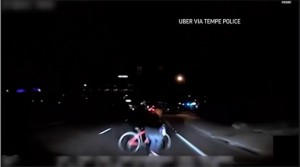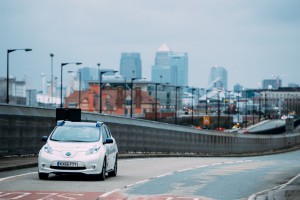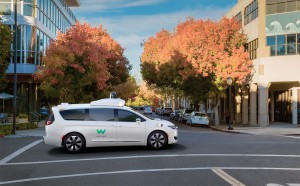As automakers scramble to find what U.S. states are best for testing autonomous vehicles, Congressional efforts to communize rules for all 50 states, once on the fast track, appears to have stalled and there is no timetable for a restart.
In today’s political climate, it would be easy to assume that partisanship is the reason the efforts have ground to a halt in the U.S. Senate, but the bill had strong bipartisan support coming out of committee.
However, the Senate is tied up with other responsibilities, such as the looming Supreme Court justice approval process and other legislative agenda items, according to the Automotive News.
The push to get a unanimous approval and avoiding a floor vote altogether has been hampered by five Democrats, Automotive News reports, who believe that self-driving vehicles are not yet safe enough to be tested on public roadways.
(Three quarters of Americans “too afraid” to ride in self-driving vehicles. Click Here for the story.)
California Sen. Dianne Feinstein, in particular, has emerged as a vocal opponent of the proposed bill—the AV START Act—in its current form. Joining Feinstein are Sens. Richard Blumenthal and Edward Markey. However, they have clearly defined issues with the bill related to privacy and cybersecurity that can be tackled.
Since then, a few incidents have occurred involving self-driving cars that may have steeled the resolve of the five Senators holding up the bill. Perhaps the best known incident being the death of a pedestrian who was hit by an autonomous Uber vehicle while she was crossing a divided highway.
A coalition of safety advocates, transportation officials and others urged the U.S. Senate to halt AV START. In fact, there were more than 40 signatories to a letter sent to congressional leaders asking for the legislation be put on hold until more information emerges from ongoing federal safety investigations into three crashes, highlighted by the Uber incident, involving autonomous technology.
“Attempts to advance the bill and bypass the legislative process, especially before having crucial information from the NTSB, would be reckless at best and deadly at worst,” said John Simpson, privacy director for Consumer Watchdog, a California nonprofit monitoring self-driving technology and testing. He also signed the letter.

The Tempe Police Department released the video footage of Uber's collision with a pedestrian, saying the event was "entirely avoidable."
(Click Here for more about Nissan’s efforts to test autonomous vehicles.)
However, proponents of the bill say that expedited passage of the bill is important because the speed at which the technology is being developed. Every day that automakers and other tech firms are held back gives foreign competition a bigger advantage.
Currently Nissan and others foreign automakers are engaged in robust testing programs in London, Singapore and other places around the world while in America, testing is limited to just six states, and the rules of that testing vary in each place.
A recent report shows that several countries, including China, are getting ahead of the U.S. in the deployment of autonomous vehicles. Currently, the U.K., Germany, South Korea and Singapore are all on track to surpass the U.S. in this area. In fact, China is well-positioned to move past all the aforementioned nations by 2020.
Supporters of the bill are pushing back on the claims of those suggesting the bill allows for a wild west testing environment when it comes to these vehicles. The bill requires manufacturers to submit a Safety Evaluation Report to the National Highway Traffic Safety Administration for approval prior to testing or deployment on our public roads, a requirement that does not currently exist, The Hill, a website that reports on the political goings on in Washington D.C.
(To see more about NTSB’s ongoing Tesla crash investigations, Click Here.)
In addition, the legislation also allows NHTSA to consider granting a time-limited exemption from current vehicle regulations that might hinder AV development. For example, how is a driverless vehicle supposed to satisfy today’s requirement that a human foot operate a brake pedal? The AV START Act does not diminish any of NHTSA’s existing regulatory authority to set uniform vehicle safety standards, issue recalls or investigate crashes. The legislation also assures that states retain their existing authority over things like vehicle registration, insurance, licensing and traffic safety, The Hill reported.



They should do all testing in south Chicago. No one seems to care how many people are killed there.